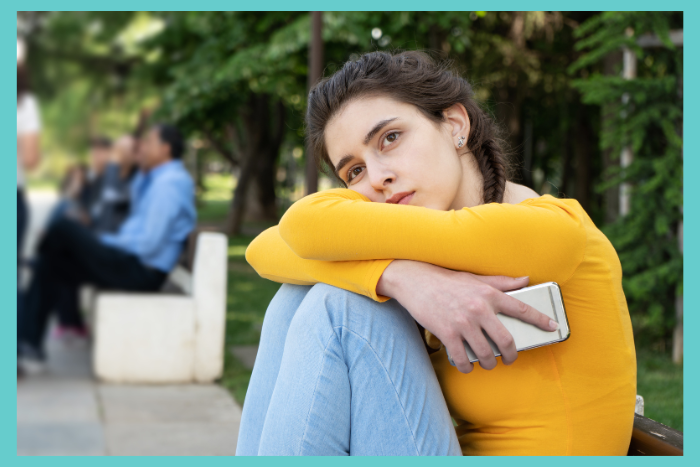About 5% of adolescents struggle with PTSD, according to the National Institute of Mental Health. PTSD, or Post-Traumatic Stress Disorder, involves either a singular event or series of events that are significantly distressing and thus cause an intense emotional response that can lead to long-term impacts in children (otherwise known as trauma).
Embrace U offers outpatient treatment programs to adolescents experiencing mental health challenges, including PTSD. Our group therapies help children and teens to better manage their symptoms so they can live happier, healthier lives. Whether you are struggling with PTSD or other mental health challenges, we offer a range of mental health treatment services to best help as many patients as possible safely and effectively manage their symptoms.
Contact us today to learn more about how we can help you live a happier, healthier life.
What is PTSD?
Before diving into how PTSD develops in teenagers, it’s first important to understand what PTSD can look like for teens and adolescents.
Traumatic events that can lead to PTSD include things like accidents, natural disasters, combat experiences, or instances of physical or sexual assault. PTSD can affect people of all ages, including teens and adolescents.
In teens and adolescents, PTSD can manifest in various ways, and the symptoms can be similar to those experienced by adults. It’s important to note that not everyone who experiences a traumatic event will develop PTSD, and individuals may respond differently to trauma.
4 Risk Factors for PTSD in Teens
PTSD develops from experiencing a traumatic event or series of traumatic events. Below are some of the most common events that can cause PTSD in children and teens.
Natural Disasters
Experiencing a severe or life-threatening natural disaster can lead to a teen developing PTSD. This includes fires, hurricanes, floods, and tornadoes. Typically, these disasters may not only put you and your loved ones in danger but can also damage your home or community. It’s common for children to feel unsafe after experiencing a natural disaster or even viewing photos or videos showing the devastation mother nature can cause.
Sexual or Physical Abuse
If, as a child, you experienced sexual or physical abuse, whether it be from a family member, friend, or stranger, this can also lead you to develop PTSD. This can include a singular event of abuse or a series of events over weeks, months, or even years. Children may not fully understand the extent of sexual or physical abuse until they are older. Abuse can lead to sever emotional impacts including fear and distrust. Children who have been abused often struggle with relationships and may exhibit unfounded feelings of shame, guilt or defiance. That’s why it’s critical that you seek professional treatment to effectively address PTSD caused by abuse.
Violence
Violence is another situation that can cause a teen to develop PTSD. For example, war, domestic violence, or even witnessing violence inflicted on someone else are all traumatic experiences that can lead you to develop PTSD. Talking to a child about violence can be difficult, but is often helpful in the long run.
Severe or Life-Threatening Injury or Accident
If you experience a severe injury or accident that puts your life and safety at risk, this is another common traumatic experience that can lead to developing PTSD. Common examples of this may include getting in a car accident.
Leading Mental Health Treatment Center For Teens
It’s crucial for parents, teachers, and caregivers to be aware of the signs of PTSD in teens and adolescents. If your child is displaying symptoms consistent with PTSD following a traumatic event, it is important to seek professional help. Early intervention and appropriate support can make a significant difference in managing and overcoming PTSD symptoms in teens and adolescents.
Gone are the days of suffering in silence with your mental health condition.
Ready to lead a happier, healthier quality of life! Contact us today!




